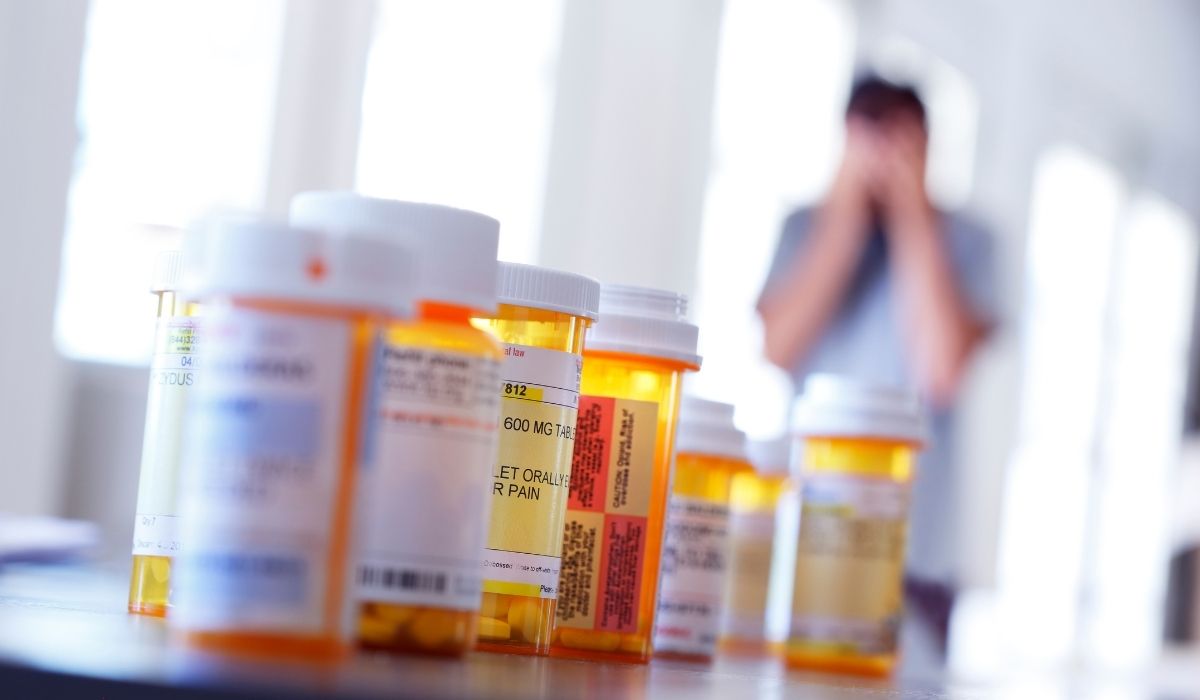How Does Drug Addiction Affect the Circulatory System?
Drug addiction affects nearly every organ in the body — but the circulatory system takes some of the greatest damage. The circulatory system includes the heart, blood, and blood vessels. It delivers oxygen and nutrients to every cell in your body. When a person uses drugs, especially over time, this system can break down, leading to cardiovascular disease, hypertension, heart failure, and even death.
This article will explain how drugs impact the circulatory system, what kinds of heart conditions can develop, and how therapy and treatment can help in recovery.

What Is the Circulatory System?
The circulatory system (also called the cardiovascular system) is made up of the heart, arteries, veins, and blood vessels.
How It Works
-
The heart acts like a pump, pushing blood through the arteries.
-
The arteries carry oxygen-rich blood to your organs and muscles.
-
The veins return oxygen-poor blood back to the heart and lungs.
This system keeps your body working. But when drugs enter the bloodstream, they interfere with this balance, damaging the cardiac muscle and blood vessels over time.
How Drugs Affect the Heart and Blood Vessels
Different drugs affect the cardiovascular system in different ways. Many drugs raise blood pressure, cause vasoconstriction (narrowing of blood vessels), or increase heart rate.
Stimulants Like Cocaine, Methamphetamine, and Amphetamine
Stimulants — such as methamphetamine, amphetamine, and cocaine — make the sympathetic nervous system go into overdrive.
These drugs increase:
-
Heart rate (tachycardia)
-
Blood pressure
-
Stress hormones
-
Oxygen demand in the heart muscle
Over time, this can lead to:
-
Cardiac arrest
-
Myocardial infarction (heart attack)
-
Atrial fibrillation (irregular heartbeat)
-
Coronary artery disease
According to the American Heart Association, stimulant use increases the risk of acute coronary syndrome, aortic dissection, and heart failure — even in young people.
How Opioids Impact the Circulatory System
Opioids like morphine, codeine, and heroin slow down body functions. They are depressants, which means they can cause:
-
Bradycardia (slow heart rate)
-
Low blood pressure
-
Reduced oxygen flow to tissues
When opioids are injected, the risk increases for infective endocarditis — a serious inflammation of the heart’s inner lining caused by infection. Repeated injection drug use can also lead to peripheral artery disease, scar tissue, and vascular disease.
Alcohol and the Circulatory System
Alcohol abuse harms the heart and blood vessels over time. It weakens the cardiac muscle, leading to alcoholic cardiomyopathy (heart muscle failure).
Health Risks of Alcohol on the Circulatory System
-
High blood pressure (hypertension)
-
Atrial fibrillation
-
Heart failure
-
Stroke
-
Increased cholesterol and triglycerides
Chronic alcohol use also causes oxidative stress and inflammation that damage cells and tissues. Even moderate drinking can cause vasodilation (widening) followed by vasoconstriction, which stresses the arteries.
Smoking and the Circulatory System
When a person smokes, toxins enter the bloodstream and travel throughout the cardiovascular system. Over time, smoking leads to atherosclerosis — the buildup of fatty plaque in the arteries.
This condition:
-
Blocks blood flow to the heart, brain, and limbs
-
Increases the risk of stroke, heart attack, and peripheral artery disease
-
Damages the aorta, the largest blood vessel in the body
The Centers for Disease Control and Prevention (CDC) links smoking with nearly one-third of all cardiovascular deaths in the United States.
Injection Drug Use and Circulatory Damage
People who inject drugs face unique dangers to their circulatory system.
Common Health Risks
-
Infective endocarditis (infection of the heart lining)
-
Vein collapse and scarring
-
Blood clots that lead to ischemia or organ failure
-
Bacterial infections that can cause sepsis
Needle use introduces harmful bacteria directly into the bloodstream, and contaminated needles spread disease like HIV and hepatitis, which also damage blood vessels.
The Role of the Sympathetic Nervous System
Drugs like stimulants and amphetamines activate the sympathetic nervous system, the body’s “fight or flight” response.
This system increases:
-
Heart rate
-
Blood pressure
-
Blood vessel constriction
-
Stress hormone release
Chronic activation causes hypertension, cardiac hypertrophy (enlarged heart muscle), and eventually heart failure.
Common Circulatory System Conditions Caused by Drug Addiction
1. Hypertension
Long-term drug use can cause high blood pressure, leading to stroke, aneurysm, or heart attack.
2. Myocardial Infarction
A heart attack happens when blood flow to part of the heart is blocked, often by atherosclerosis or a blood clot. Stimulants and opioids both increase this risk.
3. Heart Failure
Over time, constant stress, inflammation, and toxicity weaken the cardiac muscle, leading to heart failure.
4. Aortic Dissection
Certain drugs, like cocaine, can cause the aorta to tear, leading to aortic dissection, which can be fatal.
5. Arrhythmias
Atrial fibrillation, tachycardia, and bradycardia are all heart rhythm problems caused by drugs that affect electrocardiography (ECG) readings.
How Drug Addiction Leads to Long-Term Cardiovascular Disease
Drug addiction doesn’t just cause short-term effects — it changes the structure and function of the heart and blood vessels.
Over time, toxicity from drugs and alcohol causes:
-
Chronic inflammation
-
Plaque buildup in arteries
-
Oxidative stress on cells
-
Scarring (fibrosis) of the heart muscle
These conditions increase the risk of coronary artery disease, angina, acute coronary syndrome, and stroke.
Emergency Symptoms and When to Seek Help
A drug-related heart emergency should always be treated as life-threatening. Seek immediate help if you or someone you know experiences:
-
Chest pain or angina
-
Sudden shortness of breath
-
Fainting (syncope)
-
Rapid or irregular heartbeat
-
Signs of a heart attack or stroke
In the emergency department, doctors may use electrocardiography (ECG), cardiology tests, and beta blockers or other medications to stabilize hemodynamics and prevent failure.
Treatment and Recovery for Circulatory Health
Recovering from addiction is also about healing the heart. Treatment centers often provide dual diagnosis care for both substance abuse and cardiovascular disease.
Treatment Options
-
Medical detox to remove toxins safely
-
Therapy for behavior change and stress management
-
Medication (like beta blockers or calcium channel blockers) for blood pressure
-
Rehab programs to support long-term recovery
-
Lifestyle changes — healthy diet, exercise, no smoking or alcohol
With early treatment, patients can improve their cardiovascular health and reduce the risk of heart failure or death.
The Role of Therapy and Support Centers
Therapy helps individuals rebuild a life free of addiction while reducing stress — a major factor in heart disease.
Recovery centers also work with insurance providers to make cardiovascular care and addiction treatment more accessible.
Ongoing evidence-based support, including counseling, stress management, and healthy living plans, help maintain recovery and prevent relapse.
Protecting Your Heart in Recovery
Healing the circulatory system after addiction takes time and care.
You can protect your cardiovascular system by:
-
Avoiding drugs and alcohol
-
Managing stress and blood pressure
-
Eating heart-healthy foods
-
Staying active and maintaining a healthy weight
-
Getting regular checkups with a cardiologist
Remember — recovery is not just about quitting drugs. It’s about rebuilding health, strength, and hope for a better future.
Sources

Seeking Treatment? We Can Help!
We work with PPO Out of Network Health Insurance Policies
If you or a loved one are struggling with mental health challenges or substance abuse, reach out to Mountain Sky Recovery today. Our team of compassionate professionals is here to support your journey towards lasting well-being. Give us a call at 951-498-5412. Visit SAMHSA for more information.



